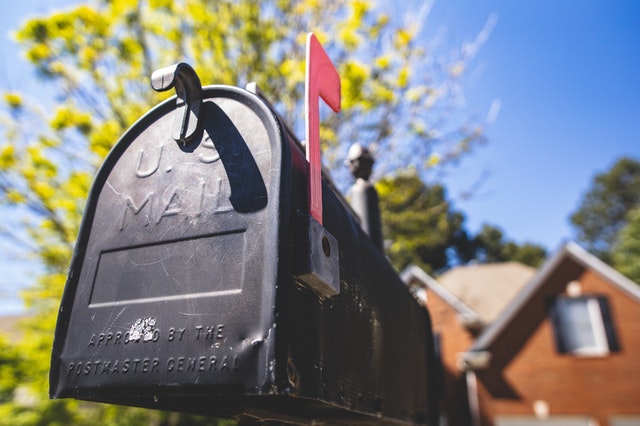
Returning a tenant’s security deposit is one of the many responsibilities of a landlord. A security deposit is an agreed-upon sum of money that a tenant gives their landlord before their rental period.
Once the tenancy period is over or if the tenant fails to fufill the rental agreement the landlord returns the security deposit to the tenant. This can be a full amount, partial, or may also be unreturned depending on the property damages left by the tenant. If the tenant also failed to pay the rent then the tenant pays with the security deposit and that would also be used to cover those missing payments.
North Carolina landlords need to know and understand both security deposit laws and landlord-tenants laws in the state to protect against potential legal issues.
This article will focus on the North Carolina security deposit return policies.
Reason for Collecting a Security deposit in North Carolina
Collecting a security deposit can serve as protection to a landlord. It can cover losses that could come up as a result of tenants failing to perform their responsibilities. This centers around situations where negligence such as excessive property damage or missed rent payments occurred. The security deposit can then be used to pay for the repairs and make up for the loss in income.
Essential Information on North Carolina Security Deposit Guidelines

Limits on How Much You Can Charge for a Security Deposit
There are maximum limits set in North Carolina depending on the term of the lease:
- Week-to-week lease: You can charge the equivalent of two weeks’ rent maximum as a security deposit
- Month-to-month lease: 1.5 months of rent as a security deposit is the maximum a North Carolina landlord can charge their tenants.
- Longer than month-to-month terms: landlords can charge no more than 2 months' rent as a security deposit.
Standard Timeframe to Return the Security Deposit
The acceptable timeframe for the landlord to return the security deposit is within 30 days of the lease expiring and the repossession of the rental unit by the North Carolina landlord.
Additional Details to Know when Handling Security Deposits
North Carolina landlords are not required to send a written notice to their renters upon receiving the security deposit. They are also not required to issue interest payments on the security deposit to the renters.
Allowable Deductions from the Security Deposit in North Carolina
It must be observed that the North Carolina landlord can only touch the security deposit once the lease ends. Once the lease period ends, the security deposit can be used to cover:
- Unpaid rent, utilities, and other pending bills related to the rental unit
- Property damages beyond normal wear and tear
- Damages occurring from breaking the lease early
- The costs of looking for a new tenant that includes fees of the broker
- The cost of storing or removing the tenant’s abandoned possessions
- Legal fees, late payment fees, or eviction charges
- A tenant’s last month’s rent if it’s stipulated in the leasing agreement

How to Store the Security Deposit
There are 2 options available to the North Carolina landlords on the security deposit storage:
- Post as a bond - this bond comes from an insurance firm licensed in North Carolina. The amount of the bond must be equal to the security deposit amount entrusted by the renter to the landlord.
- Deposit in a trust account - the account must be set up in a licensed and federally insured banking institution. Another alternative would be a trust institution in North Carolina.
Whichever option the landlord chooses, the tenant must be notified within 30-days of the tenancy terms commencing. The name and address of the financial institution where the security deposit is stored or, the name of the insurance company, must be provided in the notice.
Change in Property Ownership Effect on a Tenant’s Security Deposit
If changes occur and the rental home is transferred to another owner, the current owners release from liability for the security deposit will only materialize upon fulfillment of either of these:
- Transferring all the security deposits, after the allowed deductions are taken, to the new owner and sending a notice to the tenants about the transfer of ownership. Details of the new owner’s name and address must also be furnished to the tenants. Note that choosing this option will transfer the responsibility of handling the security deposits to the new owner.
- Return what remains of the security deposit to the tenant once the allowed deductions have been made.

The Process of Returning the Security Deposit
If deductions from the security deposit amount must be made then a written itemized list must be provided to the tenant within 30 days.
If the cost of the repairs is still uncertain then an interim list is acceptable during the 30 days. The landlord is tasked to send a complete accounting within 60 days from the day the lease expired.
Failure to return the tenant’s security deposit can subject a North Carolina landlord to a lawsuit. Furthermore, if upon checking, the landlord has failed to follow the deposit storage procedures in terms of posting a bond or depositing in a trust account then forfeiture happens.
This means the landlord will not be able to claim any rights to the security deposit. The security deposit may be returned in full and the landlord is even required to pay for the damages and associated legal fees.
In the case that a deposit is unclaimed and the tenant’s address remains unknown, the North Carolina landlord must keep the security deposit for at least 6 months.
If no claim has been made after that time has passed, the landlord is free from the obligation of returning the tenant’s security deposit.

Summary:
There are many laws and regulations that you must keep track of as a North Carolina Landlord. Failure to comply with them can result in legal action being taken against you.
To protect yourself and your property, consider hiring the services of a qualified property management company like Schambs Property Management.
Note: that this article must not be viewed as a substitute for legal advice. It’s recommended to seek legal advice from a licensed attorney in North Carolina as laws frequently change or update.